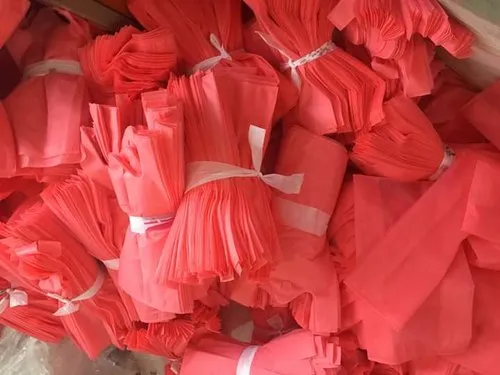Non-Woven Eco Friendly Carry Bags for Grocery
₹130.0
Product Specification
| Color | Castomize |
| Material | Non-Woven |
| Brand | Hot Shot |
| Usage/Application | Grocery |
| Pattern | Plain |
| Size/Dimension | All size |
| Size | Castomize |
| Bag Size | Castomize |
| Type | Punch |
| Minimum Order Quantity | 30 Kg |
Product Description
- Description
- Additional information
- Reviews (0)
- Q & A
- Sustainability Remark
- More Offers
- Store Policies
- Inquiries
| brands | Hot Shot |
|---|---|
| Material | Non-Woven |
You must be logged in to post a review.
Q & A
The sustainability of eco-friendly carry bags depends on several factors, including their material composition, production processes, usage, and end-of-life options. Here are some key points to consider:
Material composition: Eco-friendly carry bags are typically made from materials such as biodegradable plastics (e.g., PLA), compostable materials (e.g., cornstarch), organic fibers (e.g., cotton, jute), or recycled materials (e.g., recycled paper or plastic). The sustainability of the bag depends on the environmental impact of sourcing and manufacturing these materials.
Production processes: The production of eco-friendly carry bags should prioritize energy efficiency, waste reduction, and low emissions. Environmentally responsible manufacturing practices, such as using renewable energy sources, minimizing water usage, and reducing greenhouse gas emissions, contribute to the overall sustainability of the bags.
Usage: The sustainability of eco-friendly carry bags also depends on how they are used. Reusing the bags multiple times before discarding them helps reduce waste and resource consumption. Additionally, proper care and maintenance can extend the lifespan of the bags, making them more sustainable over time.
End-of-life options: The way eco-friendly carry bags are disposed of at the end of their life cycle significantly impacts their sustainability. Ideally, these bags should be designed for appropriate disposal methods, such as composting or recycling. Biodegradable or compostable bags should be sent to industrial composting facilities, while recyclable bags should be sorted and recycled properly. It's crucial to follow local waste management guidelines to ensure the bags are disposed of in the most sustainable manner.
Overall environmental impact: Assessing the sustainability of eco-friendly carry bags requires considering their overall environmental impact throughout their life cycle, including raw material extraction, manufacturing, transportation, use, and disposal. A life cycle analysis can help evaluate the environmental footprint of these bags and compare them to other alternatives.
It's important to note that while eco-friendly carry bags offer potential sustainability benefits over conventional plastic bags, they are not a panacea. Minimizing overall bag usage, promoting reusable bags, and adopting a circular economy approach that focuses on reducing waste and maximizing resource efficiency are key strategies for achieving long-term sustainability in the packaging and carry bag sector.
General Inquiries
There are no inquiries yet.



















Reviews
There are no reviews yet.